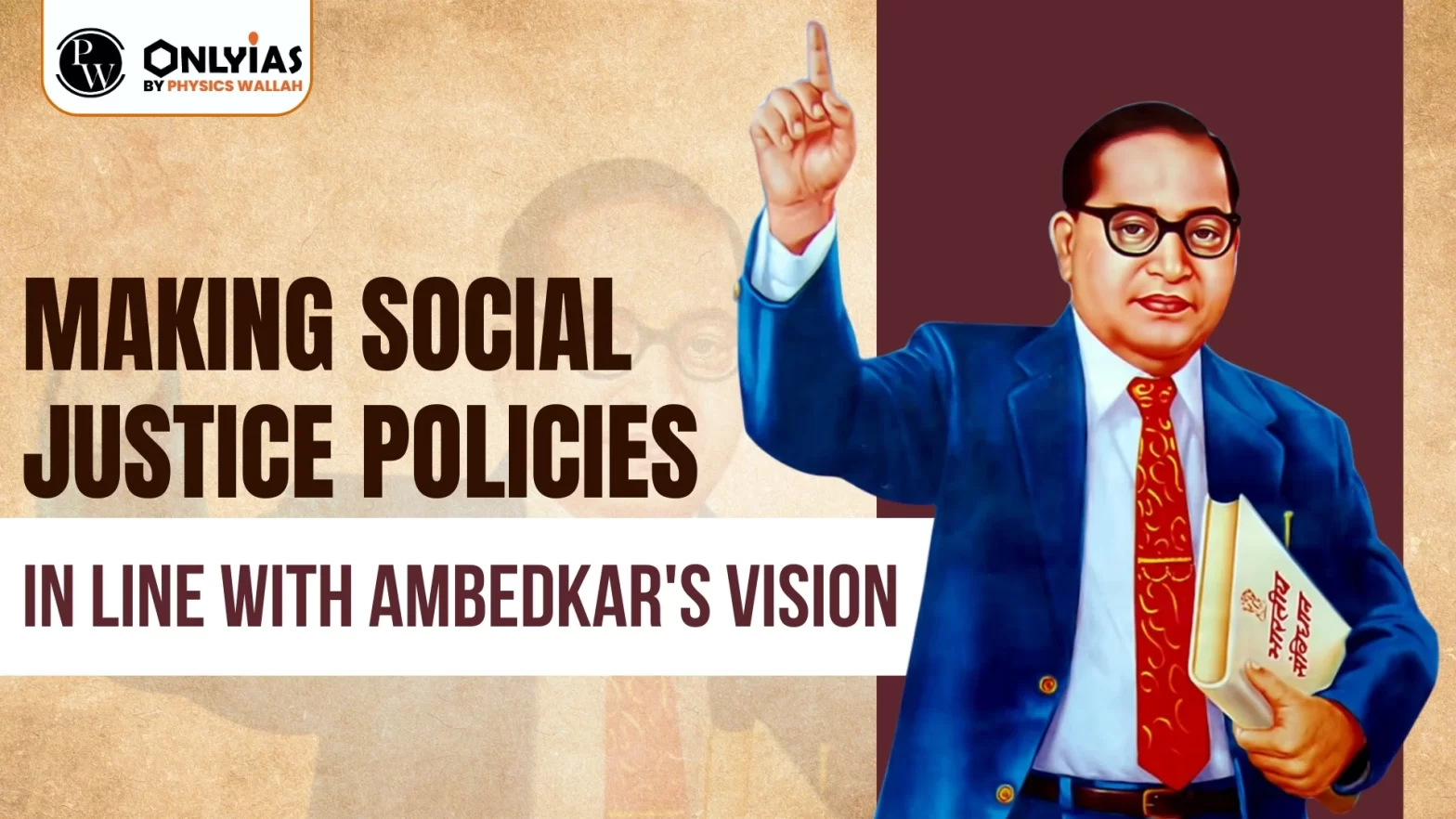Context: This article is based on an Editorial “The Ambedkar touch in rethinking social justice policies” Which was published in the Hindu. The article highlights the differences between Dr. B.R. Ambedkar’s expectations and the current situations of the marginalized communities of India under the rise of neoliberalism.
| Relevancy for Prelims: Dr. B.R. Ambedkar, Democracy and Constitutional Provisions for the Welfare of Marginalized Communities in India.
Relevancy for Mains: Social justice policies are in line with Ambedkar’s vision, and measures can be taken to align them with Dr. Ambedkar’s vision for inclusive democracy. |
About Modern Democracy: Definition, Aim, and Mandates
- Definition: In the words of Abraham Lincoln, “Democracy is a rule of the people, for the people, and by the people”.
- Deals With: Both the values of social harmony and reforms.
- Aim: To ensure dignity and self-respect to the people, especially the historically deprived and socially marginalized people.
- To achieve Social Justice, means ensuring fair and equal rights, equal opportunities, ensuring social benefits and protection for all without any discrimination.
- Mandates for Democratic Institutions: To engage with the deprived and socially marginalized people and ensure their substantive participation as a significant governing class in the political affairs of the nation.
Dr. B.R. Ambedkar’s Democratic Vision: A Critical Analysis of India’s Progress
- Expectations: Dr. B.R. Ambedkar emerged as a torchbearer of liberal enlightened ideas and expected that in Independent India marginalized communities would be given equal participation in the nation’s economic and political development.
- The state would reduce the pitfalls and slippages of social justice policies and make them more relevant.
- Significance: The socially oppressed groups in India, especially Dalits, favored and celebrated such modern virtues because of their liberating potential and egalitarian goals.
- Constitutional Provisions:
- Article 17: It states that “Untouchability” is abolished and its practice in any form is forbidden.
- Part XVI: It deals with the claims of Scheduled Castes and Scheduled Tribes (SCs and STs) to services and posts.
- Article 15(4) and 16(4): It enabled the Central and State Governments to reserve seats in government services for the members of the SCs and STs.
- Article 243D: It provides reservation of seats for SCs and STs in every Panchayat.
- Article 233T: It provides reservation of seats for SCs and STs in every Municipality.
- Article 335: It deals with the claims of SCs and STs to services and posts.
- Arising Concerns: With the rise of neoliberal economic development, the conventional support to marginalized communities that received from state institutions, has declined and resulted only in tokenistic presence.
The Path Ahead for Advancing Social Justice: Following Ambedkar’s Vision
- Follow Ambedkar’s Approach: His approach is crucial to diagnose illnesses in the social and economic order. He offers ethical corrective measures to make institutions more democratic, representative, and closer to the claims and desires of marginalized social groups.
- A Sense and Mechanism of Social Justice: It provides moral sensibilities to institutions and makes them responsible towards the diverse population.
- Reforms in Market Economy: The neglect by the neo-liberal market towards the aspirations and the demands of marginalized communities has made the market enterprise more exploitative and closer to a crony capitalist mode, which needs reforms.
- Integration of Marginalized Groups in New Economic Order: A substantive integration of social justice policies in directing the prospects of the market economy would integrate marginalized communities as a part of the working classes and also elevate their stature as influential upholders of capitalist assets.
- Address the Issues: Adivasi concerns about protecting their habitats, ecological order, and cultural autonomy must be addressed.
- Adoption of New Policies against Social Discrimination: Newer conditions and reparation policies should be adopted to fight the historical wrongs and social discrimination against these groups, ensuring their equitable participation in the diverse spheres of development.
- Need for a New Framework of Social Justice along with more Affirmative Action Policies: To ensure the upliftment of marginalized communities and allow policymakers to look beyond the conventional social justice policies (that often address them as the passive recipient of the state’s welfare packages).
Also Read: Ram Madhav – Don’t Rewrite The Indian Constitution
Conclusion:
In the current era, Ambedkar’s version of social justice is required to redefine capitalism as a pluralist and cooperative mode of economic order that guarantees the substantive participation of marginalized communities in the market economy and in the associated institutions of power and privileges.
| Prelims Question (2020)
Which one of the following categories of Fundamental Rights incorporate protection against untouchability as a form of discrimination?
(a) Right against Exploitation
(b) Right to Freedom
(c) Right to Constitutional Remedies
(d) Right to Equality
Ans: (d) |
![]() 6 Dec 2023
6 Dec 2023

